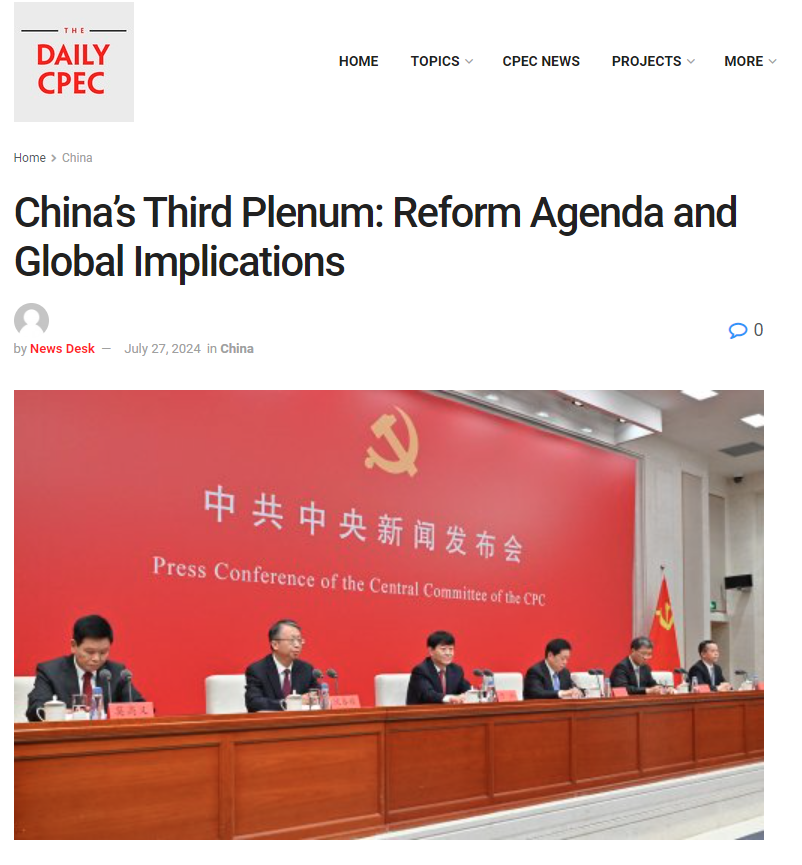LATEST INSIGHTS
Your Present Location: LATEST INSIGHTS[DAILY CPEC] John Ross: China’s Third Plenum: Reform Agenda and Global Implications
Source: DAILY CPEC Published: 2024-07-27

By News Desk
Beijing, July 27, 2024 – The recent Third Plenum of the 20th Communist Party of China (CPC) central committee has unveiled an extensive reform agenda, mapping out over 300 initiatives aimed at advancing Chinese modernization. These initiatives are set to play a crucial role in shaping the economic landscape both within China and globally. CGTN convened a distinguished panel to discuss the outcomes and global implications of the event.
Economic Outlook and Policy Signals
Maximilian Butek, Executive Director and Board Member of the German Chamber of Commerce in China (East China), highlighted the cautious optimism among businesses. “Overall, we can say that the economic development is a little below our expectations. However, 38% of our companies believe the economy will improve, while 46% expect it to remain unchanged,” he stated, emphasizing the importance of concrete measures at the provincial and city levels to enhance market openness.
John Ross, Senior Fellow at the Chongyang Institute of Financial Studies, discussed the implications of maintaining a 5% growth rate. “China aims to double its per capita GDP between 2020 and 2035, requiring an average growth of 4.7% annually. Currently, China is ahead of this target with a growth rate of around 5%,” he explained. Ross underscored that China is on track to become the largest high-income economy by 2035, transforming its economic structure significantly.
China’s Expanding Role in Global Trade
Warwick Powell from Queensland University of Technology elaborated on China’s evolving role in international trade. “China is moving up the value-added curve in manufacturing and expanding trade with Belt and Road partner countries and the global south,” he noted. This shift is also reflected in China’s increasing export of know-how and capital to establish manufacturing capabilities in various sectors worldwide.
Technological Innovation and Business Environment
Butek and Ross also addressed the potential for collaboration between Chinese and German businesses in technology and innovation. “German companies are committed to innovation in China, thanks to the talent and infrastructure available. However, we need more mutual trust and clear measures to fully leverage this potential,” Butek remarked.
Ross highlighted China’s investment in the tech sector. “Innovation is not just about good ideas but also about resources. China has double the capital investment compared to the United States, enabling it to back up its innovations more effectively,” he explained.
Future Reforms and Foreign Investment
The panelists concurred on the importance of concrete reforms to create a fair and dynamic market environment. Ross emphasized the need to address the profitability of companies, while Warwick Powell pointed to the benefits of a consolidated national market. “An integrated national market will reduce transaction costs and make business operations smoother,” he said.
In summary, China’s comprehensive reform agenda, as outlined in the Third Plenum, promises significant transformations within its economy and its role on the global stage. As China continues to open up and innovate, the world watches closely, anticipating the far-reaching impacts of these reforms.























































































 京公网安备 11010802037854号
京公网安备 11010802037854号





